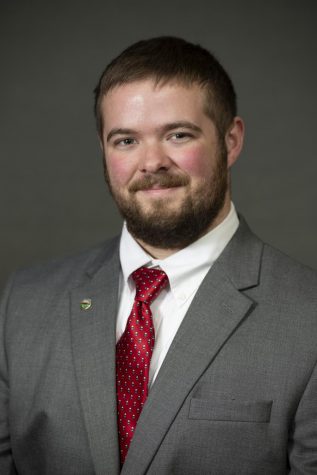‘Harman Lincoln Lecture’ honors Washburn legacy
January 26, 2019
For the past 30 years Washburn University has hosted the annual “Harman Lincoln Lecture,” which focuses on honoring Washburn’s legacy and its ties to one of the most famous presidents in American history, Abraham Lincoln. The lecture will be at 3 p.m. Feb. 21 in the Bradbury Thompson Alumni Center and it will feature the esteemed Lincoln scholar, Harold Holzer. Holzer has written many books on the topic of Lincoln and the Civil War period, including the book that will be featured heavily at the lecture, “Lincoln and the Power of the Free Press.” The lecture, “Lincoln and 150 years of Fake News,” will focus on Lincoln’s connection to the press during the brutal and bloody era of our history that claimed tens of thousands of lives.
Washburn University has a close connection to Abraham Lincoln, who can best be recognized for leading our country through the Civil War and helping to abolish the practice of slavery. Washburn was originally named Lincoln College before later being renamed after Ichabod Washburn in 1868. Since its inception, Washburn focused on the inclusion of African-American students among the rest of the student body, bearing a connection to Lincoln’s work to bring about greater equality between the races in his lifetime.
Today, the topic of the freedom of speech is under scrutiny by people on all sides of the political spectrum and what that freedom entails in the modern era. The question of freedom of speech in America was also called into question during the Civil War, as the media at the time came into play while during the war. During the Civil War, Lincoln faced great challenges, including the press which had its critics of his presidency.
Bruce MacTavish, assistant professor of history and associate dean of College of Arts and Sciences, spoke about the challenges Lincoln faced with a nation divided.
“Lincoln faced considerable criticism from the press and he really sought to control the press. Lincoln is a president that we admire, yet he used his authority to restrict which newspapers got access to telegraph wires which sounds like something out of today,” MacTavish said. “Lincoln felt justified doing that as it was wartime and, in a sense, playing hardball with the press.”
Holzer’s lecture on the topic of Lincoln and his connection to the free press during the Civil War coincides with other activities and classes at Washburn focusing on free speech.
Kelly Erby, associate professor of History, detailed how the lecture would be open to the public and how the topic of the lecture related to the present day.
“I’m on the planning committee with Professor Steinroetter and Dr. MacTavish. All three of us have research interests in the 19th century and the Civil War period. We get together and looked at scholars in the field who study Lincoln [or] Civil War era, and every year we invite someone new to come to Washburn for a lecture and faculty luncheon. This year the speaker will talk about teaching in the era of fake news,” Erby said. “I’m attracted to this era of American history because it was a great period of change with the market revolution, the industrial revolution and the changes in the roles of race and gender.”
Washburn students, faculty and staff are welcome to attend the lecture Feb. 21 as it, presents a unique opportunity to learn about an era of American history and learn how the past connects to the issues America is facing today.



